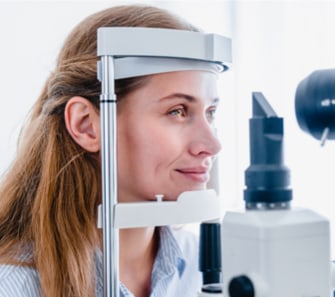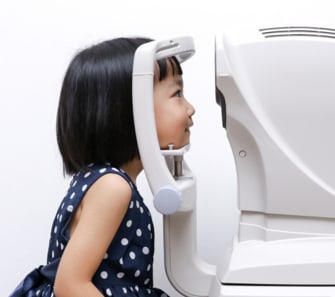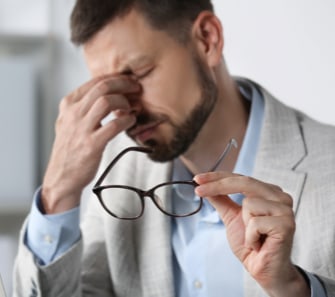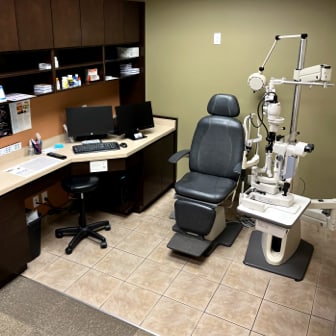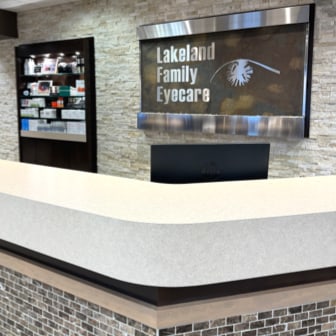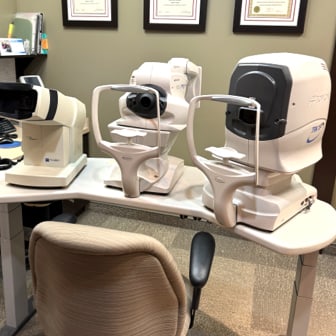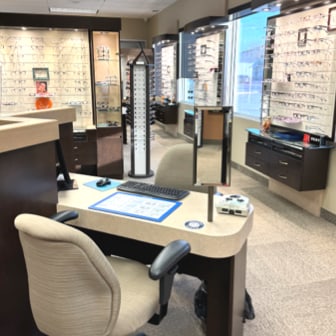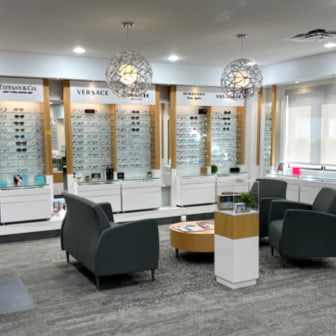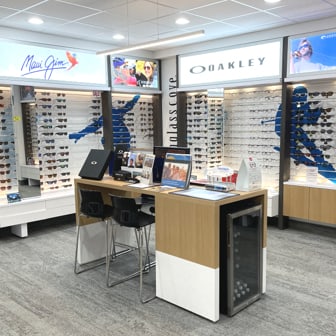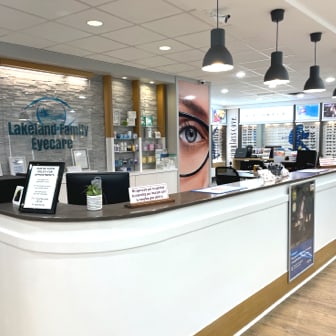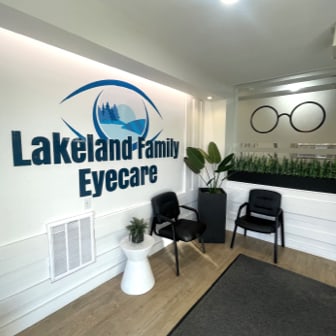
Diagnosing & Managing Low Vision
Low vision is a loss of eyesight, but not complete blindness. By definition, low vision patients have visual impairments that can’t be corrected through surgery, corrective eyewear, or medication.
Patients with low vision may find specific tasks difficult or impossible, such as:
- Reading & writing
- Watching TV
- Using digital devices
- Driving a vehicle
- Telling colours apart
- Shopping
During your eye exam, our optometrists can determine if you may benefit from additional strategies to cope with day-to-day life and refer you to a low vision clinic if needed.

What Causes Low Vision?
There is a myriad of eye conditions and diseases that can lead to low vision. The most common cause, known as age-related macular degeneration, is the deterioration of the central part of the retina.
Other potential causes of low vision include:
- Congenital disabilities
- Injuries
- Certain diseases of the body
- Aging
- Cataracts
- Glaucoma
- Damage to the optic nerve

Can Low Vision Be Prevented?
Some health conditions and eye trauma are not necessarily avoidable. However, for many eye conditions, a healthy and active lifestyle and regular eye exams (even if your eyesight is healthy) are a great step in maintaining good lifelong ocular health.
With the numerous conditions that can lead to low vision, your best chance to retain good vision is early detection and ongoing management of vision-threatening eye conditions.
Regular eye exams are critical in detecting eye and health conditions. The earlier an ocular disease is diagnosed and treated, the longer you can preserve your eyesight. Please book your eye exam today!

Our Brands







Find Us In Bonnyville & St. Paul
Bonnyville
Find us on the corner of Main & 52nd Street, across from Westline Autowash.
- 5201 50 Avenue
- Bonnyville, AB T9N 2G6
- Phone: 780-826-4437
- Fax: 780-826-4267
- Monday: 8:00 AM – 5:00 PM
- Tuesday: 8:00 AM – 8:00 PM
- Wednesday: 8:00 AM – 5:00 PM
- Thursday: 8:00 AM – 5:00 PM
- Friday: 8:00 AM – 2:00 PM
- Saturday: Closed
- Sunday: Closed
St. Paul
You can find us on 51st Avenue, next to the Fire Hall.
- 4916 51 Avenue
- St. Paul, AB T0A 3A0
- Phone: 780-645-3790
- Fax: 780-645-2830
- Monday: 8:00 AM – 5:00 PM
- Tuesday: 8:00 AM – 5:00 PM
- Wednesday: 8:00 AM – 8:00 PM
- Thursday: 8:00 AM – 5:00 PM
- Friday: 8:00 AM – 2:00 PM
- Saturday: Closed
- Sunday: Closed

Our Blog
How Often Should My Child Have an Eye Exam?
Children’s Eye Care, Eye ExamsEye exams are an important part of maintaining good eye health, and this is especially true for children. As they grow and develop, their vision can change rapidly, making regular eye exams essential. However, several factors can influence how often your child should have an eye exam. These include their age, family history of eye […]
When Should My Child Have Their First Eye Exam?
Children’s Eye Care, Eye ExamsThe Alberta Optometric Association recommends that children have their first comprehensive eye exam between 6 and 9 months of age, the second between 2 and 5 years old, and then every year after that. However, if your child is exhibiting any symptoms of vision problems or has a family history of certain eye conditions, they may need to have their first eye exam earlier. […]
Read More… from When Should My Child Have Their First Eye Exam?
Can Dry Eyes Cause Blurriness?
Dry EyeMany of us take our vision for granted until something goes wrong. Blurring vision can be troubling and confusing for millions suffering from it. Could dry eye be causing your vision to blur? Yes, dry eyes can cause blurred vision. What can you do about it? Lakeland Family Eyecare is here to help! We’ll explain […]
How Often Should My Child Have an Eye Exam?
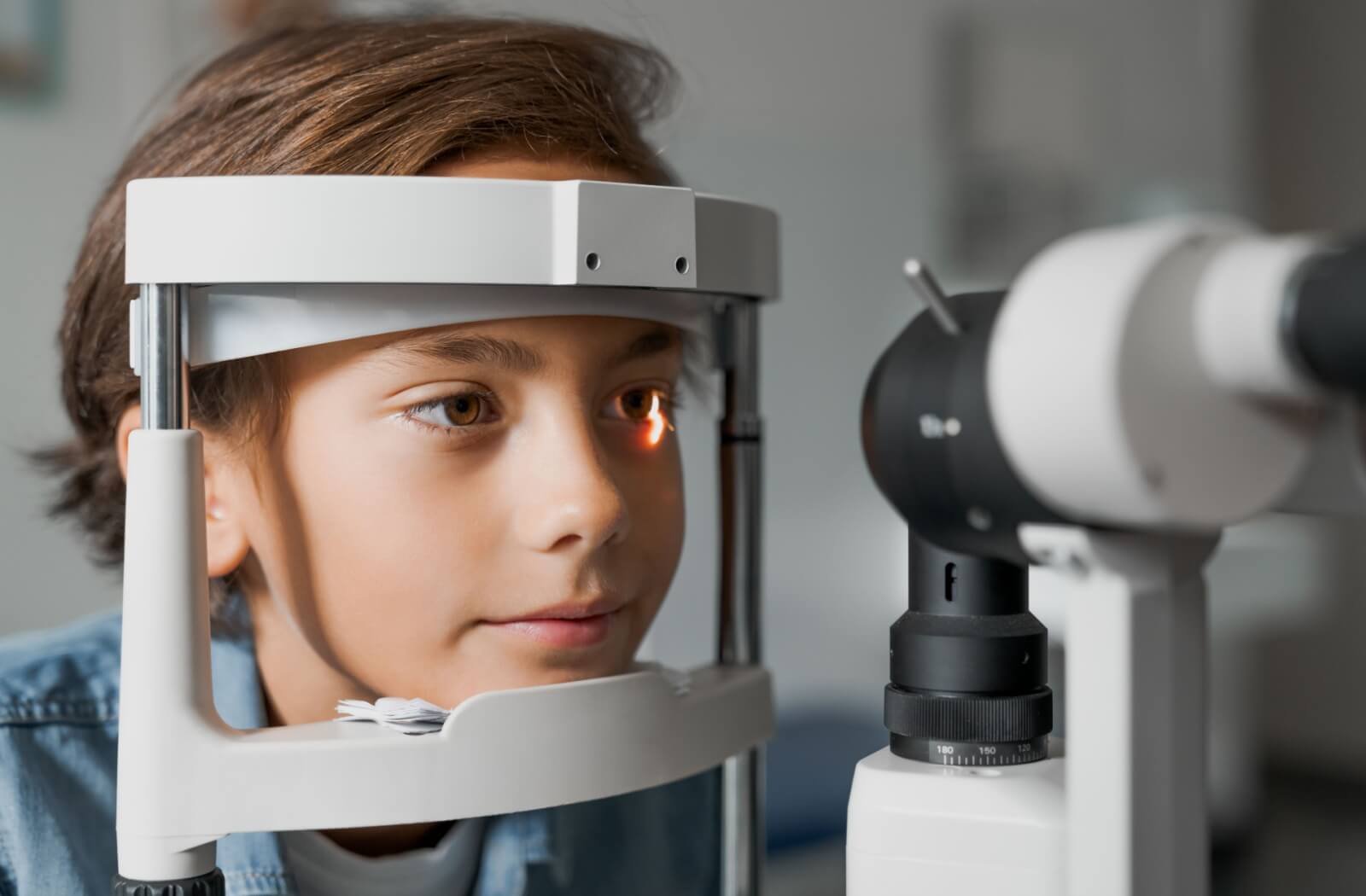
Eye exams are an important part of maintaining good eye health, and this is especially true for children. As they grow and develop, their vision can change rapidly, making regular eye exams essential. However, several factors can influence how often your child should have an eye exam. These include their age, family history of eye […]
When Should My Child Have Their First Eye Exam?
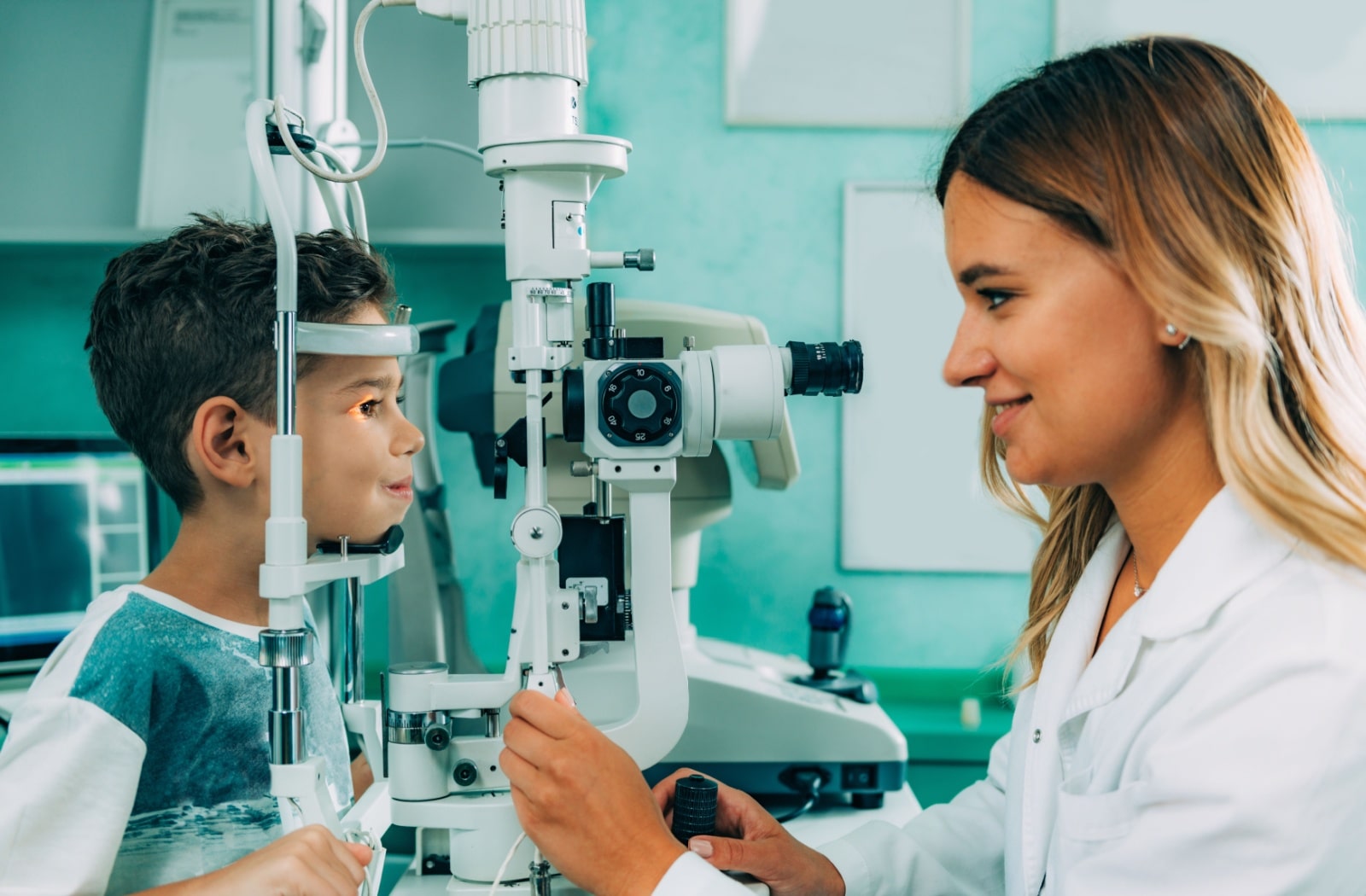
The Alberta Optometric Association recommends that children have their first comprehensive eye exam between 6 and 9 months of age, the second between 2 and 5 years old, and then every year after that. However, if your child is exhibiting any symptoms of vision problems or has a family history of certain eye conditions, they may need to have their first eye exam earlier. […]
Read More… from When Should My Child Have Their First Eye Exam?
Can Dry Eyes Cause Blurriness?

Many of us take our vision for granted until something goes wrong. Blurring vision can be troubling and confusing for millions suffering from it. Could dry eye be causing your vision to blur? Yes, dry eyes can cause blurred vision. What can you do about it? Lakeland Family Eyecare is here to help! We’ll explain […]


